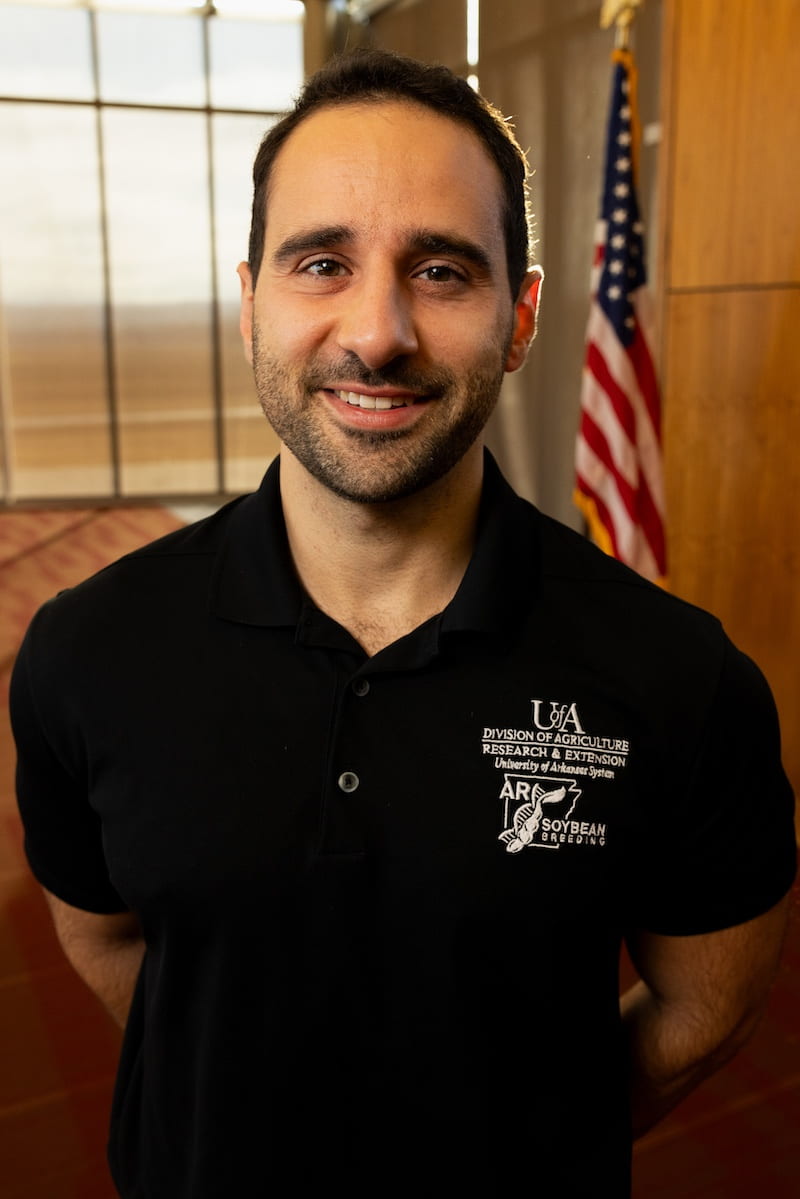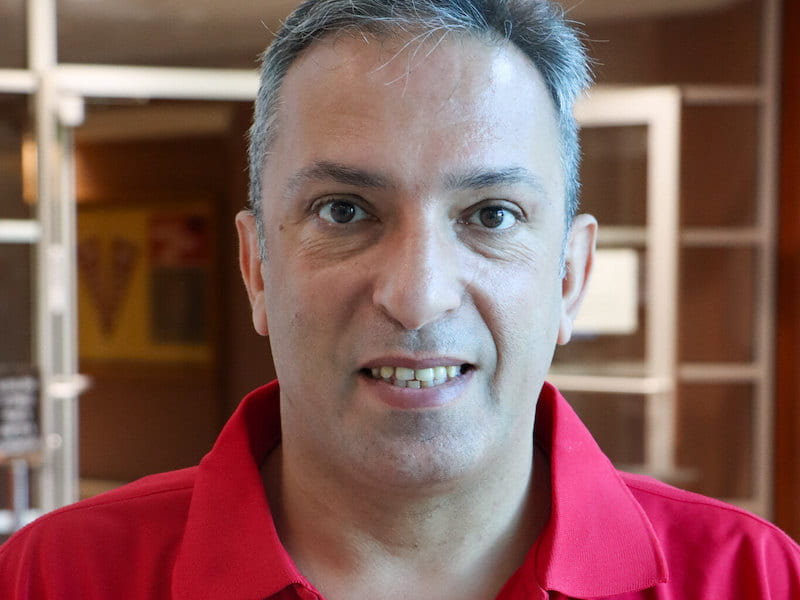December 2024 Arkansas Ag Research Report
IN THIS ISSUE:
- USDA-NIFA grant helps scientists combat southern root-knot nematode
- Weed scientist honored by USA Rice
- Diversity in Action Magazine features bioinformatics specialist
- Hear from someone who can help you write more successful grant proposals
- Austrian Marshall Plan Scholarship goes to food science Ph.D. student
- REDI-NET launched as early warning system for emerging diseases
The U.S. Department of Agriculture’s National Institute of Food and Agriculture awarded a $791,000 grant to Caio Canella Vieira, assistant professor of soybean breeding, to develop resilient soybean plants and prevent southern root-knot nematode damage.
Nematodes cause an estimated $160 billion in damages globally each year. According to the Crop Protection Network, U.S. producers suffered approximately $172 million in damages due to southern root-knot nematodes in 2023. More than half of those damages occurred in Arkansas, where producers lost approximately $95 million.

Soybean breeder Caio Canella Vieira is an assistant professor in the Crop, Soil and Environmental Sciences Department and leads a new USDA-NIFA project to develop resistance to southern root-knot nematode in soybeans.
Collaborators in this project include the Division of Agriculture’s Travis Faske, extension plant pathologist and professor; Joanna Kud, assistant professor in the entomology and plant pathology department; and Henry Nguyen, professor of plant genetics and biotechnology at the University of Missouri.
Top Notch
Norsworthy honored with Rice Industry Award
Jason Norsworthy was recently honored by USA Rice with its Industry Award for his work combatting weeds in rice. Norsworthy is a Distinguished Professor and weed scientist for the University of Arkansas System Division of Agriculture and the Dale Bumpers College of Agricultural, Food and Life Sciences. He also holds the Elms Farming Chair of Weed Science.
Norsworthy was nominated by Ford Baldwin, a retired Arkansas extension weed scientist and later consultant, who is among the giants of the field.
“He’s head and shoulders the best weed scientist I have ever known,” Baldwin said. “The one I always wanted to be!”

At left, Tim Walker, CEO of Horizon Ag, shakes the hand of Jason Norsworthy, right, weed science for the Arkansas Agricultural Experiment Station. Horizon Ag is a sponsor of the Rice Awards each year.
Fleming, a food science Ph.D. student in the University of Arkansas Dale Bumpers College of Agricultural, Food and Life Sciences, recently received an Austrian Marshall Plan Scholarship to strengthen her research on wines made from American native muscadine grapes, Vitis rotundifolia, and traditional European wine grapes, Vitis vinifera.

Amanda Fleming, a Ph.D. food science student, was awarded an Austrian Marshall Plan Scholarship to study at Graz University of Technology in Austria this spring.

Assistant Professor Aranyak Goswami is featured in the most recent issue of Diversity in Action Magazine for his work in animal science research.
Aranyak Goswami, a bioinformatics specialist with the Division of Agriculture and Bumpers College, was featured in a Diversity in Action Magazine article on how AI is being used in animal research, from conservation efforts to animal health.
Goswami boosts computational biology and bioinformatics research for the poultry science and animal science departments, as well as the experiment station’s Center for Agricultural Data Analytics.
Listen — Food, Farms & Forests Podcast

In this episode of the Food, Farms & Forests podcast, Keith Berry Jr., the Arkansas Agricultural Experiment Station’s first research development specialist, shares an overview of the grant proposal writing process and provides some quick tips for finding funding success.
Research Spotlights
REDI-NET launch brings new line of defense against emerging diseases
Emily McDermott, assistant professor of medical and veterinary entomology, is a co-principal investigator of REDI-NET, a U.S. Department of Defense-funded project that developed an early warning system for the military to help identify emerging biological threats.
REDI-NET stands for Remote Emerging Disease Intelligence Network and is being used in labs serving the Department of Defense, particularly the Army and Navy, around the world.
“This is something that infectious disease researchers have recognized for a long time, that we need a better way to figure out what can cause problems before it starts causing problems,” McDermott said.
 Rashid Lebunge sets a trap in Kenya using carbon dioxide to lure host-seeking ticks. The work is part of REDI-NET, a Department of Defense project to improve infectious disease research. (Photo courtesy Cameron Osborne)
Rashid Lebunge sets a trap in Kenya using carbon dioxide to lure host-seeking ticks. The work is part of REDI-NET, a Department of Defense project to improve infectious disease research. (Photo courtesy Cameron Osborne)
Watch
Brian Haggard – Understanding Water Quality
Brian Haggard is on a mission to analyze and protect one of our most vital resources — water. As a professor in the Biological and Agricultural Engineering Department and director of both the Arkansas Water Resources Center and the Water Quality Lab, Brian and his dedicated team are helping transform how we understand and safeguard water quality.







